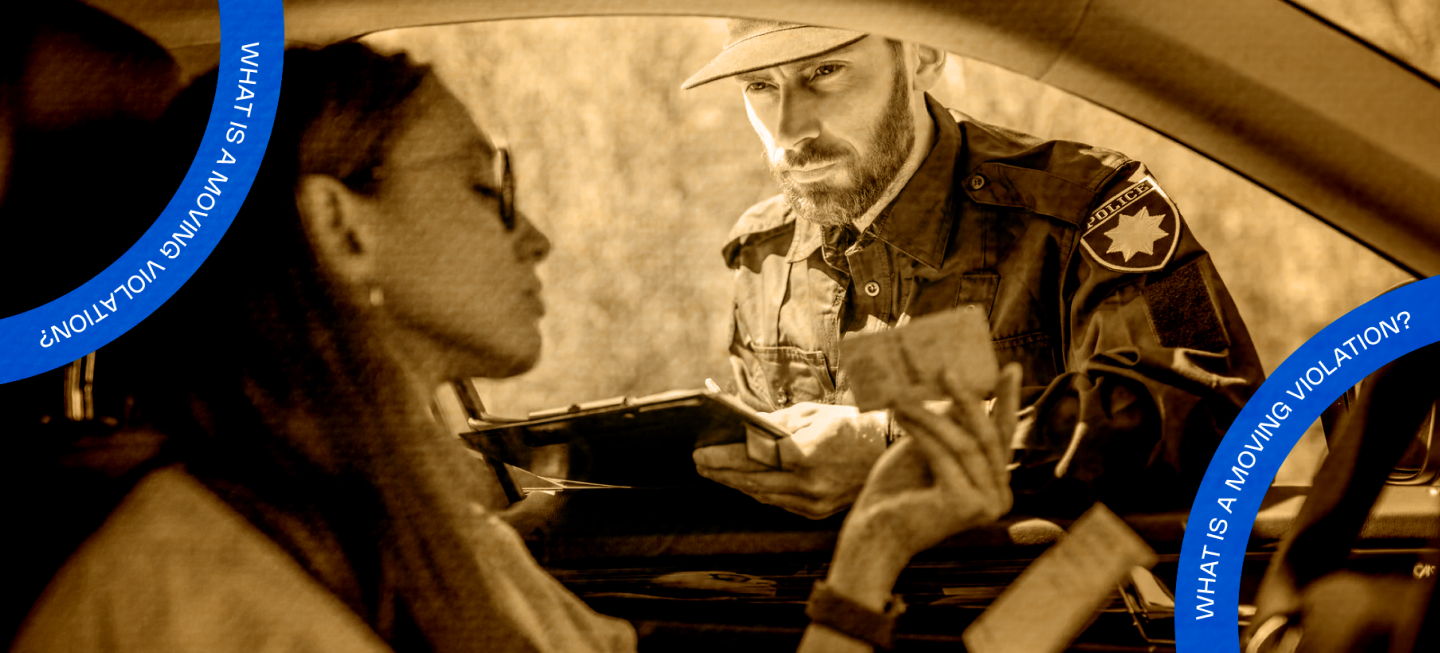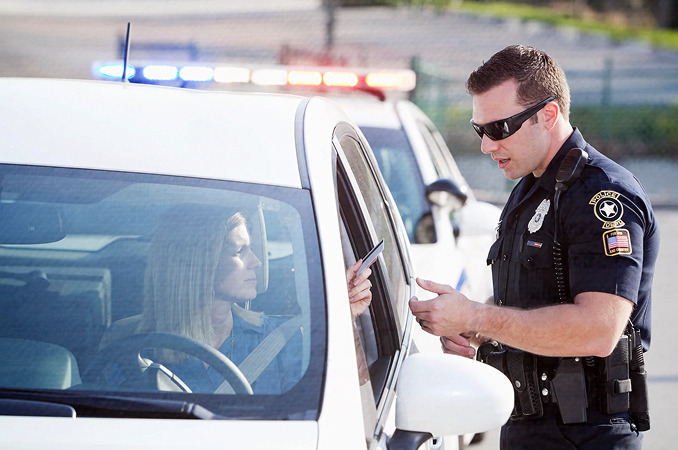
Table Of Contents
- What Is a Moving Violation?
- Examples of Moving Violations
- Penalties and Consequences: What Happens When You Get a Moving Violation?
- What Are the Legal Steps to Take When You Face Charges of a Moving Violation?
- 1. Read the Ticket Carefully
- 2. Understand Your Options
- 3. Gather Evidence
- 4. Consider Hiring a Lawyer
- 5. Appear in Court If Necessary
- 6. Follow Up on the Outcome
- Conclusion: Your Exclusive Rights Against Such Cases
What is a Moving Violation: What To Do If You Face Charges?
What is a moving violation? If you have been frantically searching for this, then you are not alone!
You see, driving comes with responsibilities, and following traffic laws is one of them. Sometimes, drivers break these laws, whether by accident or on purpose, which can lead to what is called a moving violation.
A moving violation happens when a driver does something illegal while the vehicle is in motion. These violations can range from speeding to running a red light.
If you receive a moving violation ticket, you might have to pay a fine, get points on your driver’s license, or even face serious legal consequences.
So, if you want to know about what are your rights when you face charges of a moving violation, you have come to the right place!
What Is a Moving Violation?

A moving violation is a traffic offense that occurs when a vehicle is in motion. These violations differ from non-moving violations, which happen when the vehicle is parked, such as parking in a no-parking zone or having an expired registration.
Moving violations are serious because they can put drivers, passengers, and pedestrians at risk. Law enforcement officers issue tickets for these violations to ensure that drivers follow the rules and keep the roads safe.
Examples of Moving Violations
There are many types of moving violations, and they vary depending on where you are driving. Some of the most common examples include:
- Speeding: Driving faster than the posted speed limit.
- Running a Red Light or Stop Sign: Failing to stop at a traffic signal or sign.
- Reckless Driving: Driving in a dangerous manner that puts others at risk.
- Driving Under the Influence (DUI): Operating a vehicle while under the influence of alcohol or drugs.
- Distracted Driving: Using a phone or doing anything else that takes your attention away from the road.
- Not Using Turn Signals: Failing to indicate when changing lanes or turning.
- Tailgating: Driving too closely behind another vehicle.
- Failure to Yield: Not giving the right of way to other vehicles or pedestrians when required.
- Improper Lane Changes: Switching lanes without checking mirrors or signaling.
- Driving Without a Valid License: Operating a vehicle without the proper licensing.
Each of these violations carries different consequences, depending on how serious the offense is.
Penalties and Consequences: What Happens When You Get a Moving Violation?
If you are caught committing a moving violation, the penalties can vary based on the severity of the violation, your driving history, and the laws in your state or country. Here are some possible consequences:
- Fines: You may have to pay a fine, which can range from a small fee to hundreds of dollars.
- Points on Your License: Many states have a point system where certain violations add points to your driving record. Accumulating too many points can result in a suspended license.
- Increased Insurance Rates: Insurance companies may charge you higher premiums if you have multiple moving violations on your record.
- License Suspension or Revocation: Serious offenses, like reckless driving or DUI, can lead to losing your driver’s license.
- Mandatory Traffic School: Some violations require you to attend a defensive driving course.
- Jail Time: In extreme cases, such as DUI or reckless driving, you may face jail time.
- Community Service: Some courts may require you to complete community service hours.
The impact of a moving violation can be long-term, especially if it leads to higher insurance costs or a loss of driving privileges.
What Are the Legal Steps to Take When You Face Charges of a Moving Violation?
If you receive a ticket or face charges for a moving violation, you have legal options. Here’s what you can do:
1. Read the Ticket Carefully
- Check the details of the violation, including the date, time, location, and reason for the ticket.
- Make sure your name and vehicle information are correct.
2. Understand Your Options
When you receive a moving violation, you generally have three choices:
- Pay the fine: This is the simplest option but may result in points on your license and higher insurance rates.
- Attend traffic school: This can help reduce points on your license and sometimes lower fines.
- Contest the ticket in court: If you believe the ticket was issued unfairly, you have the right to fight it.
3. Gather Evidence
If you choose to contest the ticket, collect any evidence that supports your case:
- Photos or videos of the area where the violation occurred.
- Witness statements from passengers or others who saw what happened.
- Any traffic camera footage, if available.
4. Consider Hiring a Lawyer
- If the violation is serious (like DUI or reckless driving), hiring a traffic attorney may be your best option.
- A lawyer can help reduce penalties, negotiate with the court, or even get the charges dismissed.
5. Appear in Court If Necessary
- If you contest the ticket, you may have to attend a court hearing.
- Be polite, dress appropriately, and present your case clearly.
- If the officer who issued the ticket doesn’t show up, your case may be dismissed.
6. Follow Up on the Outcome
- If you are ordered to pay a fine or attend traffic school, make sure you complete all requirements on time.
- Check your driving record to ensure any incorrect points are removed.
Taking the right legal steps can help minimize the impact of a moving violation on your record and finances.
Conclusion: Your Exclusive Rights Against Such Cases
As a driver, you have rights when facing a moving violation charge. You don’t have to accept the ticket without question—you have the right to:
- Challenge the Violation: If you believe the ticket was unfair, you can fight it in court.
- Request Evidence: You can ask for proof, such as radar gun readings for a speeding ticket.
- Seek Legal Help: If you are unsure of your rights, you can consult a lawyer.
- Negotiate Penalties: Some courts allow drivers to take defensive driving courses instead of paying fines or getting points.
- Remain Silent and Avoid Self-Incrimination: You do not have to admit guilt when speaking to a police officer.
Understanding these rights and taking the right steps can make a big difference in how a moving violation affects you. Staying informed, driving safely, and knowing your options can help you handle any traffic-related legal issue wisely.
Read More:









